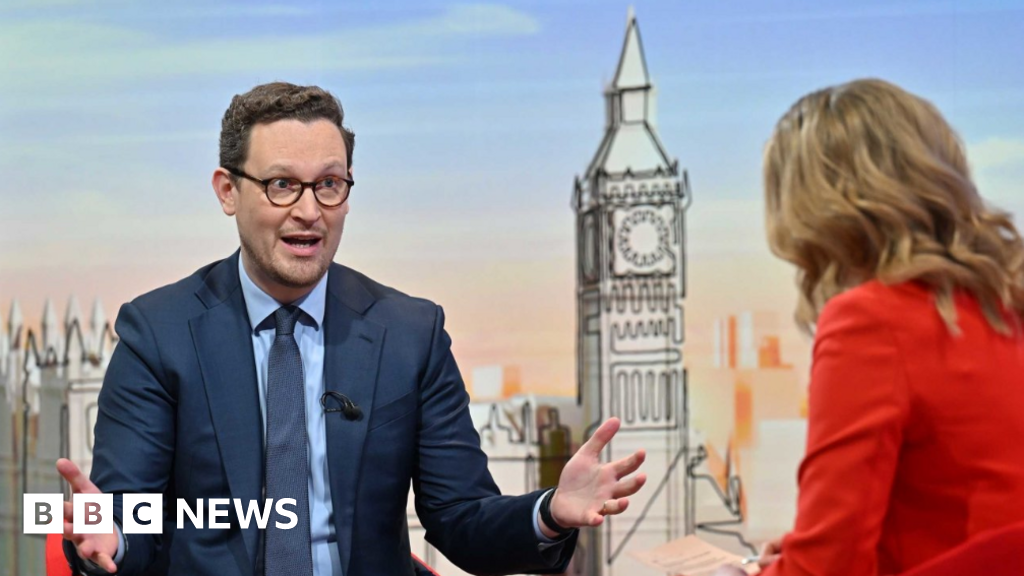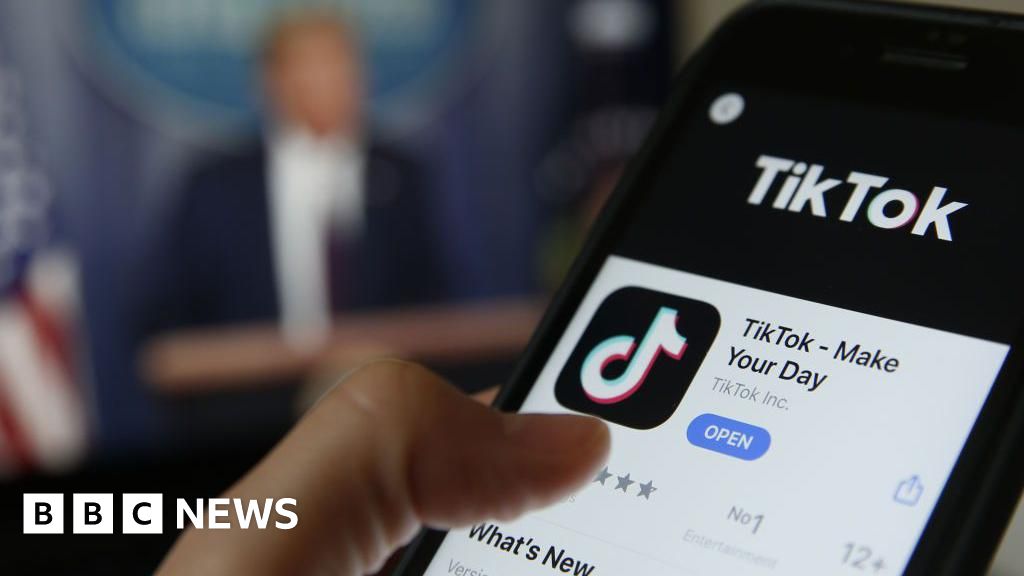ARTICLE AD BOX
John Neill says the prospect for UK investment is "very worrying"
By Faisal Islam
Economics editor
The boss of a major UK manufacturing firm has told the BBC he is considering moving investment to the US or Europe due to new subsidies offered there.
John Neill, who runs parts and logistics giant Unipart, said he wanted to invest in Britain but UK companies could not "compete on a level playing field".
The US is spending billions of dollars to support makers of electric vehicles, green energy and microchips through loans and tax breaks.
Europe may offer rival subsidies soon.
But the UK has yet to announce its strategy, with Chancellor Jeremy Hunt telling the BBC that he would wait to see what the EU did before making any decisions.
Based in Oxford and employing more than 8,000 people, Unipart makes vehicle parts, components and manages supply chain logistics.
Mr Neill, who is also a key board member of the car industry body the SMMT, said America's Inflation Reduction Act (IRA), passed last year, was offering firms a "completely game changing set of incentives and fiscal support" that was hard to ignore.
"I've asked our team to think very carefully about our investment strategy in the US and our US operations and whether we should be pivoting more into those markets and possibly also into our European companies," he said.
The bill will offer hundreds of billions of dollars in grants, loans, tax incentives and subsidies to support the production of goods such as electric vehicles and green energy - the catch being that recipients must manufacture on US soil.
It follows similar funding pledges in the US Infrastructure Bill and its Chips Act, aimed at wider spending and boosting domestic production of key microchips.
The US bills are partly aimed at tackling supply chain problems that emerged during the pandemic, and partly at reducing America's reliance on China for key strategic technologies.
But they have ignited concerns about protectionism among US allies such as the European Union - which is planning its own subsidies in response - Korea, Japan and the UK.
Unipart operates in Europe, North America, Japan and Australia
"No one envisaged that the Americans would change the rules to the extent they have, it just seemed kind of un-American in a way. But they have," Mr Neill told the BBC.
"For us to invest we need to understand what Britain's strategy is and what our regulatory framework is going to be. And we're not clear about any of that."
Other top UK industrialists have warned the UK risks "standing on the side lines" and losing key manufacturing investments if it does not come up with a response.
And the former Aston Martin boss said the entire UK car industry was at risk.
Already thousands of projects are being developed across America due to the US investments, especially in former coal areas of the "Rust Belt" which spans regions such as Pennsylvania, West Virginia, Kentucky and Michigan.
The BBC last week visited manufacturer Ascend Elements in Western Kentucky, where it has begun construction on the first phase of a $1bn facility to harvest key rare earth elements from old batteries. The US government has provided some $500m to support the project.
The important ingredients in an electric vehicle battery will now be produced in the US, having almost entirely been imported from China.
"What it's done is accelerated the US's ability to be self-reliant, to make these battery materials on their own," boss Mike O'Kronley told the BBC.
He added that the US had leapfrogged Europe, which had previously been set to be the number two market for producing batteries.
"If the UK is going to compete with what's happening here in the US, a similar level of incentives or favourable legislative environment or framework needs to be put in place," Mr O'Kronley said.
"That that hasn't taken place yet, but it certainly could."
Chancellor Jeremy Hunt told the BBC that while there is a role for some subsidies "to a certain extent, what America is doing is playing catch up with the UK and other European countries".
"And we think over the long run if you depend entirely on subsidies, the risk is that it's wasteful because you spend money on projects that would have happened anyway."
The government has said it will respond to the US measures when it is clear what the European Union will do. Labour has promised a British version of the Inflation Reduction Act, but has not clarified how much funding it would allocate.
UK firms are fearful that the EU is already moving to respond to the US, with Spain fast-tracking a round of massive support for the manufacture of electric vehicles and batteries.
Decisions will be made in the coming weeks, and have attracted interest from the owners of Jaguar Land Rover, India's Tata Group, which is currently deciding whether to build a "gigafactory" in the UK.

 1 year ago
33
1 year ago
33








 English (US) ·
English (US) ·